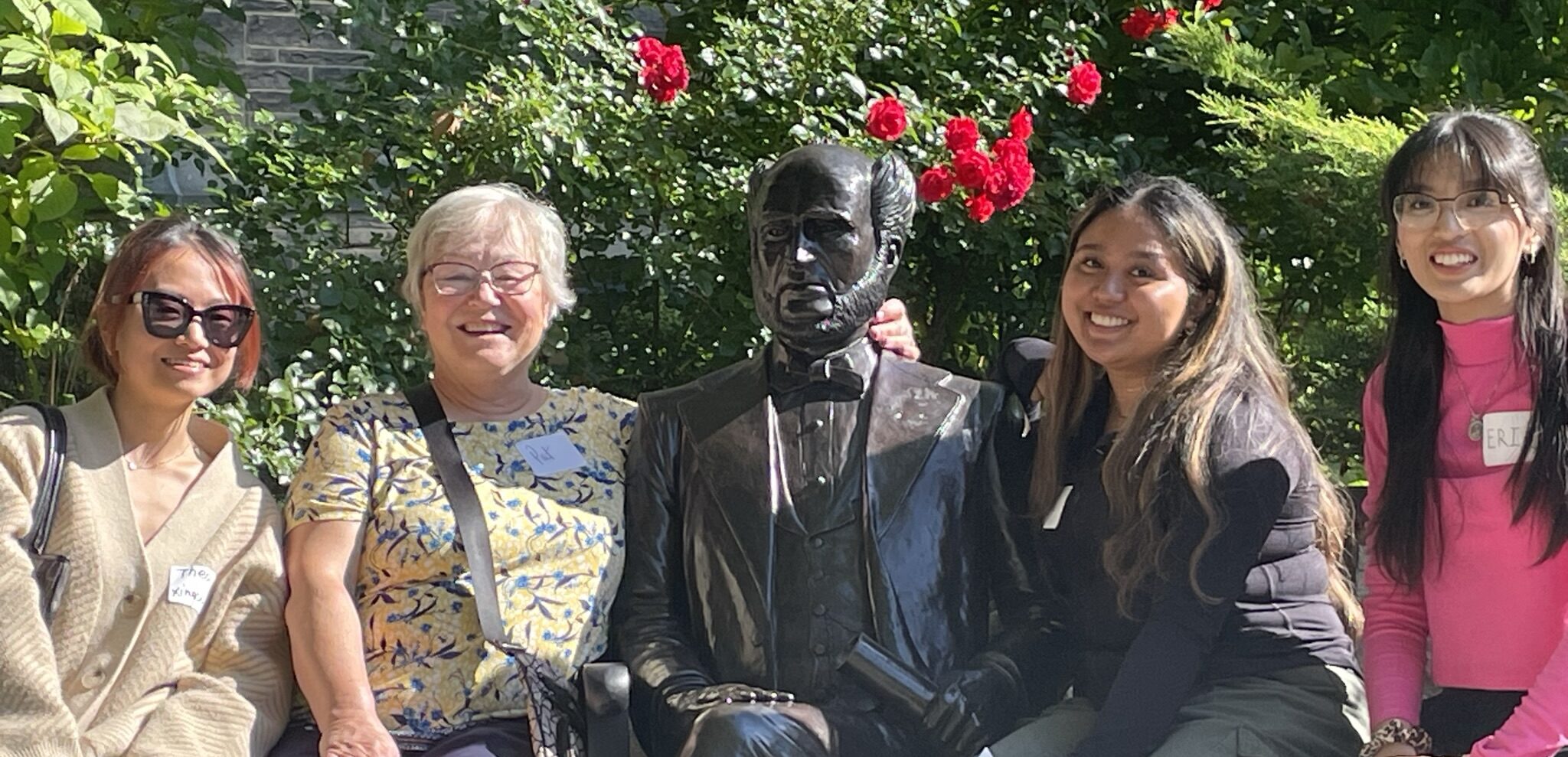Every September, bright minds eager to learn and experience the vibrancy of McMaster arrive on campus. Yes, many are entering their first year of studies, but this year, an event welcomed older adults from the Hamilton community to McMaster’s main campus too. For many, this was their first time on campus.
On September 15, McMaster’s inaugural Older Adult Open Campus Day brought 50 community members and over 70 students to learn together about the exciting work happening at the University through activities with 16 of the campus’ most interesting groups.
Funded by the McMaster Okanagan Office of Health & Well-being through the McMaster Okanagan Special Project Funding (MOSPF), and organized by the McMaster Institute for Research on Aging (MIRA) and the Gilbrea Centre for Studies in Aging, the intergenerational group of participants visited a mix of locations open to the public, such as the W.J. McCallion Planetarium and the McMaster Biology Greenhouse, and some typically not open, such as the Faculty of Engineering’s McMaster Smart House and Dr. Paula Gardner’s Pulse Lab.

“Meeting with the older adults and being able to talk with them on campus was terrific,” said Charlie Callegari, first-year Social Sciences student. “Their lived experiences and stories shared a greater perspective on aging as a social process, along with great tips for moving forward in life!”
Inspired by McMaster University’s popular “Take Your Kids to Work Day,” Older Adult Open Campus Day supported both the Okanagan Office’s goal of promoting health and well-being initiatives on campus, and, as a member of the international Age-Friendly University Network, McMaster’s goal of encouraging the participation and inclusion of older adults in the University’s core activities. Older adult participants said they were excited by the cutting-edge research, greenspace, architecture and respect for older adults on campus.
“Older adults hold a wealth of experience and knowledge that McMaster’s learners and researchers can greatly benefit from hearing,” says Anthea Innes, Director of the Gilbrea Centre for Aging Research. “By bringing older adult community members onto campus and connecting them with the work happening here, we strengthen the university’s value to our community and give back a bit to the people who share so much with us. It is a very enriching relationship for everyone involved.”
This event was made possible thanks to the enthusiasm from campus partners such as the McMaster Libraries, the Faculty of Engineering and Campus Tours. Staff at these sites volunteered their time and expertise to share with guests the best of what McMaster has to offer.
Ine Wauben, Executive Director of MIRA, noted that programming like this can serve as a valuable opportunity to highlight the programming and activities available and open to the public at McMaster.
“Many members of the public see McMaster as a closed institution and don’t know that they are able to access things that are happening on campus,” said Wauben. “We hope that the older adults who joined us on campus are encouraged to share the experiences they had with friends and family, encouraging more people to feel welcome here.”


The programming was supported by students from Dr. Yvonne LeBlanc’s Introduction to Aging and Society class where, as part of their coursework, students are encouraged to participate in programming with older adults in their community. Doing so provides a valuable opportunity to learn more about the diverse and interesting life experiences of older adults, and helps students to develop intergenerational communication skills that will serve them well, no matter where they go.

